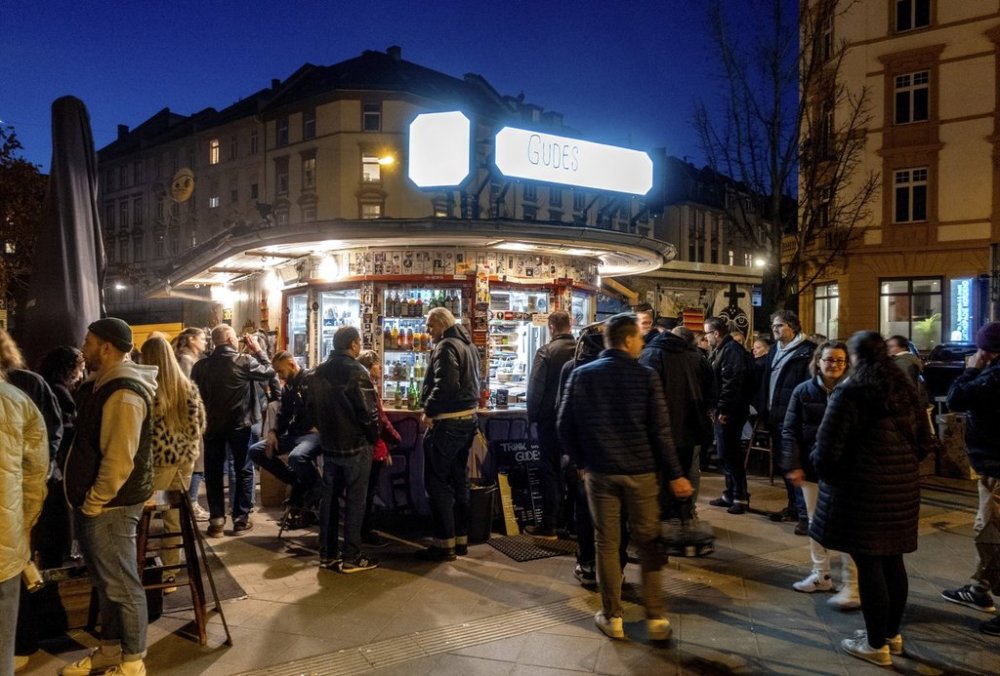In Germany’s financial capital, traditional water houses bring people of all classes together
Advertisement
Read this article for free:
or
Already have an account? Log in here »
To continue reading, please subscribe:
Monthly Digital Subscription
$1 per week for 24 weeks*
- Enjoy unlimited reading on winnipegfreepress.com
- Read the E-Edition, our digital replica newspaper
- Access News Break, our award-winning app
- Play interactive puzzles
*Billed as $4.00 plus GST every four weeks. After 24 weeks, price increases to the regular rate of $19.00 plus GST every four weeks. Offer available to new and qualified returning subscribers only. Cancel any time.
Monthly Digital Subscription
$4.75/week*
- Enjoy unlimited reading on winnipegfreepress.com
- Read the E-Edition, our digital replica newspaper
- Access News Break, our award-winning app
- Play interactive puzzles
*Billed as $19 plus GST every four weeks. Cancel any time.
To continue reading, please subscribe:
Add Winnipeg Free Press access to your Brandon Sun subscription for only
$1 for the first 4 weeks*
*$1 will be added to your next bill. After your 4 weeks access is complete your rate will increase by $0.00 a X percent off the regular rate.
Read unlimited articles for free today:
or
Already have an account? Log in here »
FRANKFURT, Germany (AP) — Frankfurt has become Germany’s financial capital, known for the country’s only high-rise skyline. But look closer to the ground and you’ll find a tradition that brings rich and poor, bankers and punks, together.
The humble “Wasserhäuschen,” or little water houses, have been a distinctive feature of the city since they started springing up in the second half of the 19th century.
Back when drinking unboiled tap water wasn’t advisable, the little kiosks offered bottles of mineral water. They encouraged workers, with the city’s approval, to drink affordable water rather than beer and schnapps.

They thrived as they weren’t subject to the official closing hours imposed on shops. And they were useful supply stations again in the immediate aftermath of the destruction of World War II.
These days, there’s more on offer at the water houses: a quick beer, candy, the newspaper, cigarettes, sometimes cafe service, with tables and the odd sofa on the sidewalk.
Laura Poellath, a 27-year-old student who works at the “Fein” water house, says the little kiosks are “like a living room in the city.”
“The people are very varied, from young to old, all the different groups are here,” she says.
“Water houses are social meeting points,” says Hubert Gloss, who offers tours of the houses that are spread around the city. “They are accessible; everyone is welcome here, it’s a democratic place … without these meeting points, the city would lose something in human terms.”
There were once 800 of the freestanding kiosks, but their numbers have diminished as a result of new building and other factors, Gloss says. City authorities say there are now about 300, most of them leased by breweries or distributors of drinks to their operators.
Photographer Stefan Hoening says today’s water houses are a place where “everyone, no matter where they come from and no matter what their pay grade, can come together and feel at ease without being judged.”
“That’s the good thing about water houses,” the 42-year-old says. “With kiosks, you usually go there, buy something and go back home. Here, people from all the different classes meet.”

